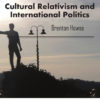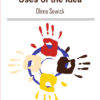Our consumption of goods obviously is a function of our culture. Only by producing and selling things and services does capitalism in its present form work, and the more that is produced and the more that is purchased the more we have progress and prosperity. Consumption is the process by which goods and services are, at last, put to final use by people. Consumption is at the end of the line of economic activities that starts with an evaluation of available resources and proceeds through production of goods and services and distribution of goods and services (or the means to acquire them) among people and groups. At last, the goods and services themselves come to be used. The effect of this consumption, including depletion of resources and generation of waste as well as enhancement of human survival and flourishing, determines the resource base for the next round of economic activity. Consumption is the sole end and purpose of all production and the welfare of the producer ought to be attended to, only so far as it may be necessary for promoting that of the consumer. Consumption activities most directly address living standard (or lifestyle) goals, which have to do with satisfying basic needs and getting pleasure through the use of goods and services. However, the production, processing, and consumption, of commodities requires the extraction and use of natural resources (wood, ore, fossil fuels, and water); it requires the creation of factories and factory complexes whose operation creates toxic by products, while the use of commodities themselves creates pollutants and waste. Yet of the three factors environmentalists often point to as responsible for environmental pollution — population, technology, and consumption — consumption seems to get the least attention.
Consumer Society: Critical Issues & Environmental Consequences compiles together a huge set of resources for thinking about consumer culture and examining its geneses and concerns worldwide. Decades of relatively steady growth have changed the way we live. We produce and consume more goods and services. We travel more and live longer. But the environmental impacts of our economic activities at home and abroad have become bigger and more visible. Environmental legislation, when implemented thoroughly, achieves results on the ground. This book will be of beneficial for all those interested in global culture of consumption including students of sociology, social geography and cultural studies.













